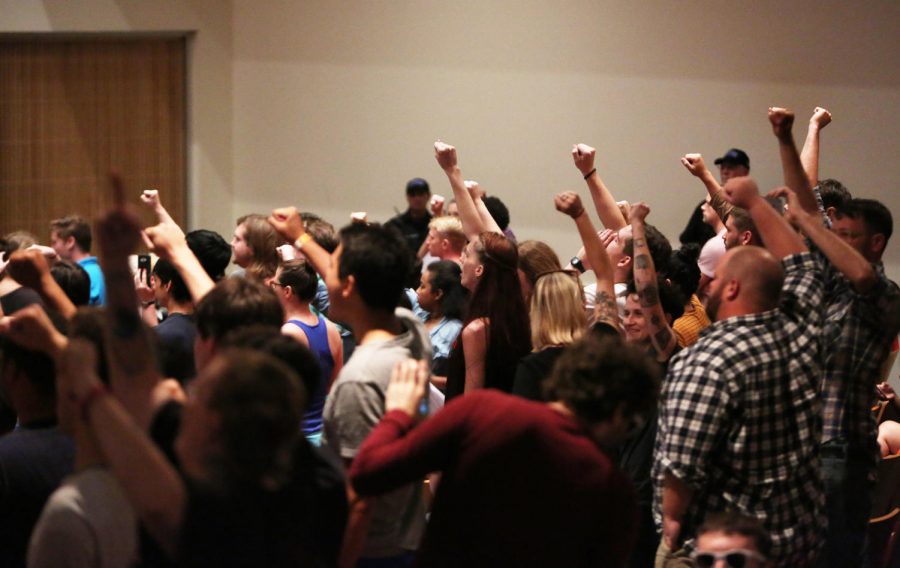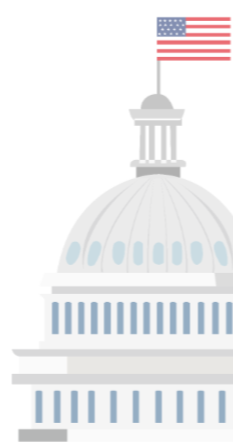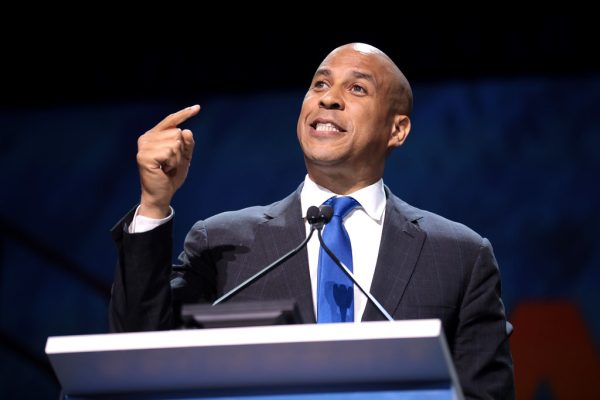Controversial white nationalist speaker ignites backlash over University of Cincinnati appearance
STAND UP. Students at the University of Florida protest against white nationalist Richard Spencer during his speech. His request to speak at public universities across the nation has generated a debate about the relationships between free speech and hate speech. The University of Cincinnati plans to have increased security before, after, and during the event.
Neville Pinto, President of the University of Cincinnati (UC) sent out a letter on October 27 explaining his decision to allow Richard Spencer, President of the white supremacist think tank the National Policy Institute, to speak at the campus.
Earlier in October, Spencer made headlines when he requested to speak at the University of Florida. The University initially denied his request, citing safety concerns. However, Spencer hired a lawyer and threatened to sue on First Amendment grounds.
During his speech on Oct. 19, Spencer was greeted with hecklers and protesters.
As of now there is no specific time or date set for Spencer’s visit, but UC anticipates the event to occur early in 2018. UC has created a web page with FAQs, statements, and information about the visit.
As a public institution, the University of Cincinnati can not choose speakers based the content of their speeches. Free speech issues, directed by the First Amendment, still applies to “loathsome speech,” which is how Spencer has requested to speak.
Pinto clarified that Spencer was not invited by the University of Cincinnati or any student, faculty, or staff group affiliated with the University.
“In fact, countless members of our community have courageously pointed out that his ideology of hate and exclusion is antithetical to the core values of a civil society and an academic community.
“I stand with you in condemning dehumanizing views and racist practices,” Pinto said in a letter to UC staff and students sent on October 13.
On Oct. 24, a Board Resolution passed reaffirming UC’s core values which, “[denounced] prejudice and racism and fully [embraced] the diversity that makes our university so great.”
The Resolution expanded on the President’s sentiments, calling on the community to “accept responsibility; celebrate the uniqueness of each individual; embrace freedom and openness; practice civility; promote justice; pursue learning and scholarship; seek integrity; and strive for excellence.”
In response to Spencer’s visit, UC staff and student groups, including the United Black Student Association and Global Public Health Brigade, have stepped forward with statements of inclusiveness and unity.
Your donation will support the student journalists of Sycamore High School. Your contribution will allow us to purchase equipment and cover our annual website hosting costs.







